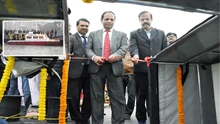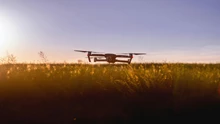
The dairy co-operatives need long-term finance for establishing processing units, pasteurization plants, investment on building, plant, machinery etc. They need medium term finance for the purchase of livestock for replacement, and short term payment for wages and salaries, etc. In the early stages of development of dairy co-operatives, the bulk of their requirement was met by government. At present the most important source of finance for milk co-operatives is borrowings from state governments and central financing agencies like National Co-operative Development Corporation (NCDC).
Assistance from NCDC
Under NCDC's scheme for the development of dairy co-operatives, the corporation provides financial assistance for the establishment of integrated dairy projects through the state co-operative dairy federations. An integrated project includes the establishment of a milk chilling centre of 10,000 and milk processing plant of 50,000. It will also provide technical inputs for milk producers organization, such as mobile veterinary care, artificial insemination, etc. and will also formulate fodder development programmes. The project cost includes the creation of new or expansion of the existing chilling and processing facilities and also for the setting up of cattle feed plants by the district milk unions and State Co-operative Dairy Federation. NCDC assistance is available only in the areas outside the Operation Flood.

Pattern of assistance
NCDC's assistance is disbursed in the pattern shown in the table .
|
Sl.No |
State |
From NCDC to the state govt |
From state govt to society |
|
1 |
Co-operatively developed states |
70% of the block cost of the project as loan |
70% as loan 30% as subsidy/ share capital |
|
2 |
Co-operatively under developed state |
60% loan and 20% subsidy |
60% loans 40% loans |
|
3 |
Cooperatively least developed states |
75% loan and 20 % subsidy |
60% loans 40% subsidy |

NCDC's assistance is routed through the state government or the state co-operative bank for a period of 14 years in the form of reimbursement finance. Assistance is first released by the state government to the concerned society and then an equal amount is claimed from the corporation later on.
Twenty-five percent of the sanctioned assistance is released as ways and means of advance after the society has acquired land and placed orders for the machinery. Further assistance is given in relation to the progress in the implementation of the project.
Condition of eligibility for NCDC assistance
The marketable surplus of milk in the area under the operation of the proposed unit should be sufficient to run the unit to its full capacity within two years of its operation.
The organization of milk collection routes in the area should be such that the expenses incurred on transportation from milk producers to the dairy are minimum.
The bye-loans of the society should be the same as that of the Anand pattern dairy co-operatives. The dairy co-operatives should have experience of 2 to 3 years in the handling of milk
The area around the proposed unit should have sufficient potential for the sale of milk/milk products. The society should indicate whether it will be selling milk to the dairy unit or to the consumers directly, and also whether the society will supply milk to the dairy unit in its own transport or if the dairy unit should make its own arrangements for transportation.
The milk unions interested in the assistance of the corporation should be financially sound and they should have professionals working with them, to take care of the working of the project.
Procedure for NCDC's assistance
Societies interested in the NCDC scheme should control the state Registrar of co-operative societies (RCS) or the regional project office of NCDC for necessary guidance. Application formats are available at these offices.

Societies that fulfill the terms and conditions should apply to the state RCS in the prescribed manner. Advance copies of the application should be sent to either NCDC's Head Office or Regional Office.
A society's proposal should be accompanied by the State Government's recommendation. The financial assistance should be released after appraising the viability of the project by an expert team. The size of the unit is determined on the basis of the marketable surplus of milk in the area of its operation and the potential of marketing of milk and milk products in the area.










